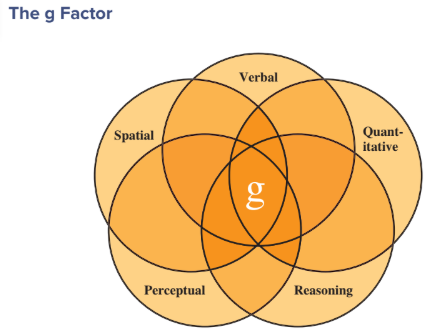Chapter 4: Personality, Cultural values, & Ability
1/21
Earn XP
Description and Tags
CANOE & Hofstedes dimensions
Name | Mastery | Learn | Test | Matching | Spaced | Call with Kai |
|---|
No study sessions yet.
22 Terms
What are personality/cultural values?
Captures what people are like as individuals
structures impact attitudes & behaviours
What is ability?
captures what people can do
What are the key elements of personality?
They are a stable set of characteristics
genetically determined
affects attitudes & behaviours
can change overtime
What is the task performance order of importance of the 5 big traits?
Conscientiousness (most likely to engage in citizenship behaviour & not behave counterproductively)
Neuroticism/Emotional stability
Extraversion
Agreeableness
Openness to experience
(CANOE)
What is 1. Conscientiousness
Dependable, organized, reliable, ambitious, hardworking, persevering
accomplishment striven
strongest relationship to job performance
What is 2. Agreeableness
Kind, cooperative, sympathetic, helpful, courteous, warm
communion/acceptance striven, getting along instead of ahead
positive relationship for certain jobs
What is 3. Neuroticism/Emotional stability
Nervous, moody, emotional, insecure, jealous, unstable
large mood fluctuations, negative moods, stressed
negative relationship to job performance
What is 4. Openness to experience
curious, imaginative, creative, complex, refined, sophisticated
positive association depends on field/job
Extraversion
talkative, sociable, passionate, assertive, bold, dominant
thrive in social situations, appear more effective, higher job satisfaction
What is situational strength?
Behaviour & personality shown based on the situation/environment
How would you react to a yellow light?
What is the locus of control? Internal vs. External?
The beliefs an individual has about the things that happen to them
External: what happens is beyond control, externally caused, and comes from the outside
Internal: what happens is within control, from own choices/abilities
What are the Hofstede’s dimensions of cultural values?
Individualism/Collectivism
Power distance
Uncertainty avoidance
Masculinity/Femininity
Orientation (short/long)
What is Individualism/Collectivism?
Individualism: loose knit social framework, take care of self & family
Collectivism: tight social framework, take care of members
What is low/high power distance?
Low: uniform power distribution
High: Unequal power distribution
What is low/high uncertainty avoidance?
Low: uncertain/ambiguous situations
High: formal rules & stability
What is masculinity/femininity?
Masculinity: assertiveness
Femininity: caring for others & quality of life (good benefits usually)
What is short/long term orientation?
Short: past-prevent oriented values (tradition)
Long: future oriented values (persistence)
What is work centrality?
The extent of work to life balance
high score: life revolves around/fulfilled by work
What are cognitive abilities?
Verbal (understanding oral/written communicataion)
Quantitative (doing basic math operations)
Reasoning (solving problems with insight/logic)
Spatial (visual & mental awareness)
What is emotional ability?
Emotional intelligence (understanding/use of emotions)
Self awareness (ability to understand own emotions)
Other awareness (ability to understand others emotions)
Emotion regulation (quickly recover from emotional experiences)
Use of emotions (manage emotionally charged situation)
What is physical ability?
Strength
Stamina
Flexibility
Coordination
Psychomotor (ability to manipulate/control objects)
Sensory (vison & hearing ability)
What is the g-factor?
The overlap of cognitive abilities
